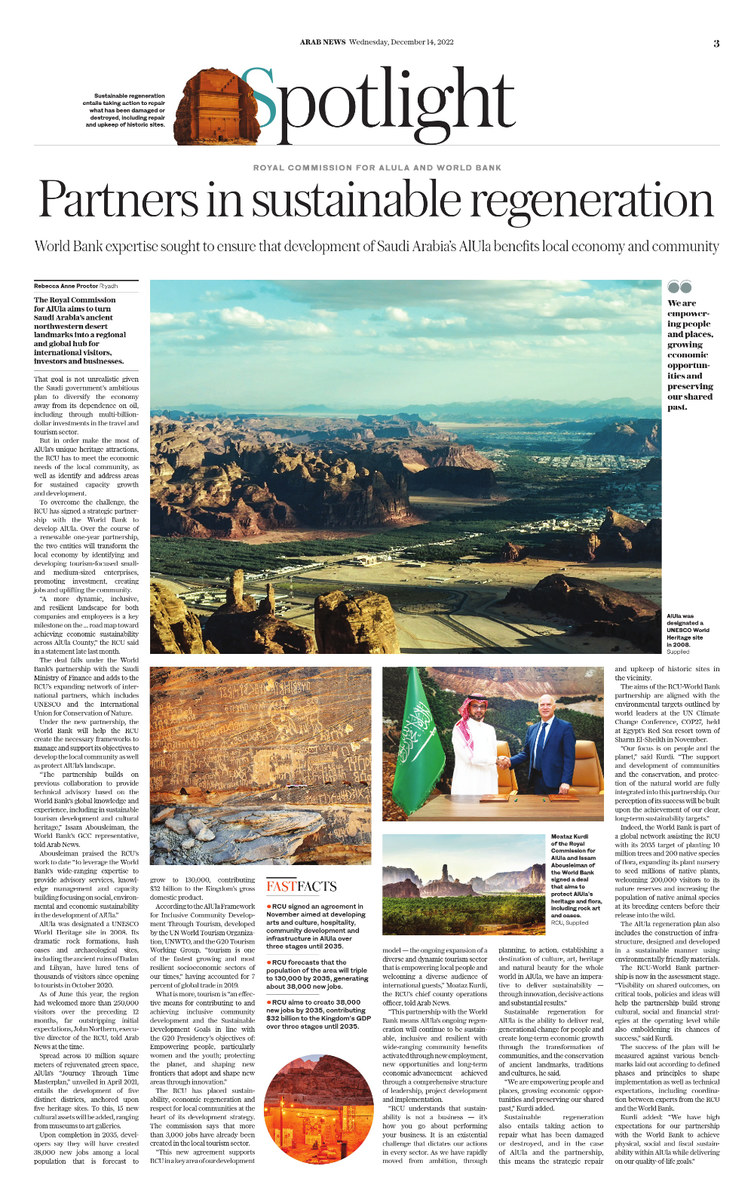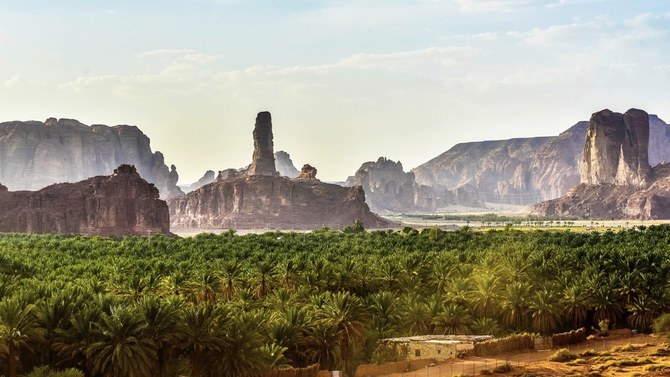RIYADH: The Royal Commission for AlUla aims to turn Saudi Arabia’s ancient northwestern desert landmarks into a regional and global hub for international visitors, investors and businesses.
That goal is not unrealistic given the Saudi government’s ambitious plan to diversify the economy away from its dependence on oil, including through multi-billion-dollar investments in the travel and tourism sector.
But in order make the most of AlUla’s unique heritage attractions, the RCU has to meet the economic needs of the local community, as well as identify and address areas for sustained capacity growth as well as development.
To overcome the challenge, the RCU has signed a strategic partnership with the World Bank to develop AlUla. Over the course of a renewable one-year partnership, the two entities will transform the local economy by identifying and developing tourism-focused small- and medium-sized enterprises, promoting investment, creating jobs and uplifting the community.
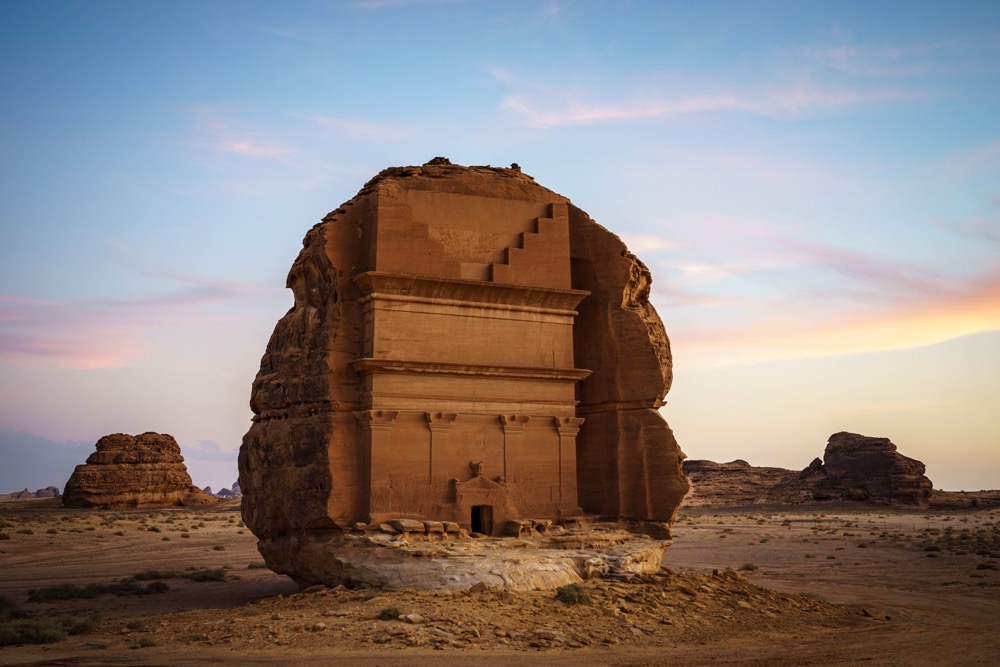
Nabatean-era tombs carved on limestone formations are a common feature in AlUla. (Supplied)
“A more dynamic, inclusive, and resilient landscape for both companies and employees is a key milestone on the ... road map toward achieving economic sustainability across AlUla County,” the RCU said in a statement late last month.
The deal falls under the World Bank’s partnership with the Saudi Ministry of Finance and adds to the RCU’s expanding network of international partners, which includes UNESCO and the International Union for Conservation of Nature.
Under the new partnership, the World Bank will help the RCU create the necessary frameworks to manage and support its objectives to develop the local community as well as protect AlUla’s landscape.
“The partnership builds on previous collaboration to provide technical advisory based on the World Bank’s global knowledge and experience, including in sustainable tourism development and cultural heritage,” Issam Abousleiman, the World Bank’s GCC representative, told Arab News.
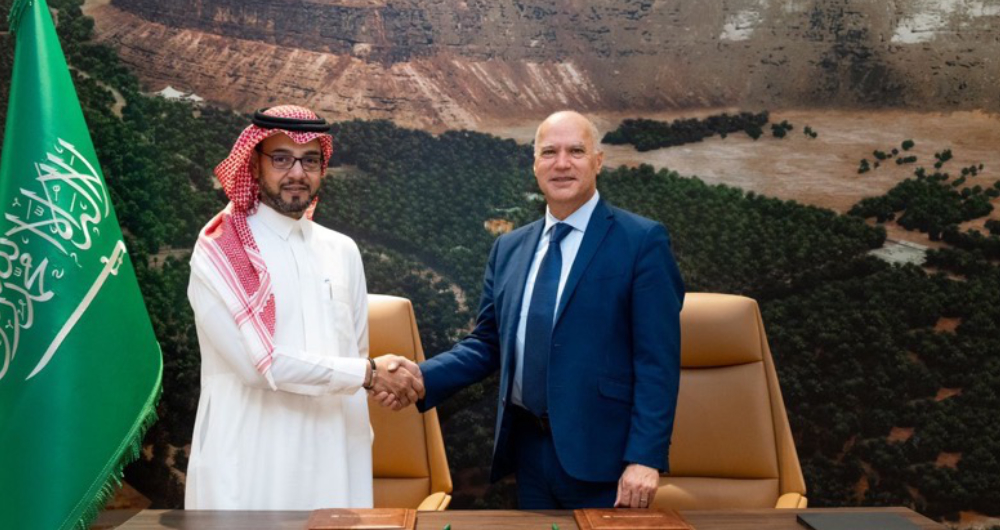
Wesam Lubbad, chief finance officer of the Royal Commission for AlUla, and Issam Abousleiman of the World Bank signed a deal that aims to protect AlUla’s heritage and flora, including rock art and oases. (Supplied)
Abousleiman praised the RCU’s work to date “to leverage the World Bank’s wide-ranging expertise to provide advisory services, knowledge management and capacity building focusing on social, environmental and economic sustainability in the development of AlUla.”
AlUla was designated a UNESCO World Heritage site in 2008. Its dramatic rock formations, lush oases and archaeological sites, including the ancient ruins of Dadan and Lihyan, have lured tens of thousands of visitors since opening to tourists in October 2020.
As of June this year, the region had welcomed more than 250,000 visitors over the preceding 12 months, far outstripping initial expectations, John Northern, executive director of the RCU, told Arab News at the time.
Spread across 10 million square meters of rejuvenated green space, AlUla’s “Journey Through Time Masterplan,” unveiled in April 2021, entails the development of five distinct districts, anchored upon five heritage sites. To this, 15 new cultural assets will be added, ranging from museums to art galleries.
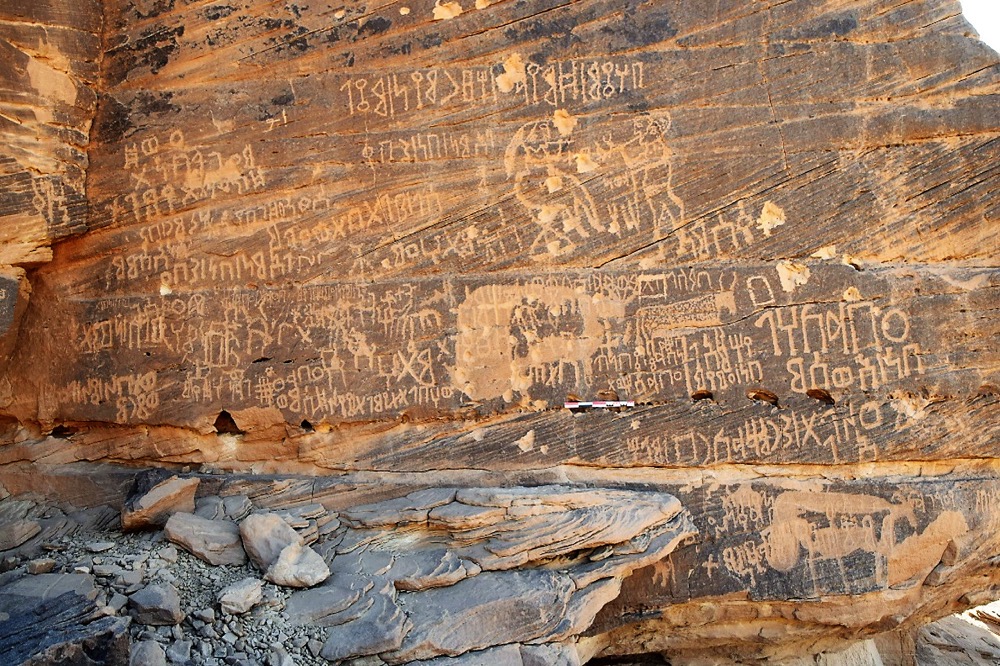
AlUla is full of archaeological treasures from the Dadanite, Nabataean, Roman and Islamic civilizations, nestled among beautiful desert landscapes. (Supplied)
Upon completion in 2035, developers say they will have created 38,000 new jobs among a local population that is forecast to grow to 130,000, contributing $32 billion to the Kingdom’s gross domestic product.
According to the AlUla Framework for Inclusive Community Development Through Tourism, developed by the UN World Tourism Organization, UNWTO, and the G20 Tourism Working Group, “tourism is one of the fastest growing and most resilient socioeconomic sectors of our times,” having accounted for 7 percent of global trade in 2019.
What is more, tourism is “an effective means for contributing to and achieving inclusive community development and the Sustainable Development Goals in line with the G20 Presidency’s objectives of: Empowering people, particularly women and the youth; protecting the planet, and shaping new frontiers that adopt and shape new areas through innovation.”
The RCU has placed sustainability, economic regeneration and respect for local communities at the heart of its development strategy. The commission says that more than 3,000 jobs have already been created in the local tourism sector.
FASTFACTS
• RCU signed an agreement in November aimed at developing arts and culture, hospitality, community development and infrastructure in AlUla over three stages until 2035.
• RCU forecasts that the population of the area will triple to 130,000 by 2035, generating about 38,000 new jobs.
• RCU aims to create 38,000 new jobs by 2035, contributing $32bn to the Kingdom’s GDP.
“This new agreement supports RCU in a key area of our development model — the ongoing expansion of a diverse and dynamic tourism sector that is empowering local people and welcoming a diverse audience of international guests,” Moataz Kurdi, the RCU’s chief county operations officer, told Arab News.
“This partnership with the World Bank means AlUla’s ongoing regeneration will continue to be sustainable, inclusive and resilient with wide-ranging community benefits activated through new employment, new opportunities and long-term economic advancement — achieved through a comprehensive structure of leadership, project development and implementation.
“RCU understands that sustainability is not a business — it’s how you go about performing your business. It is an existential challenge that dictates our actions in every sector. As we have rapidly moved from ambition, through planning, to action, establishing a destination of culture, art, heritage and natural beauty for the whole world in AlUla, we have an imperative to deliver sustainability — through innovation, decisive actions and substantial results.”
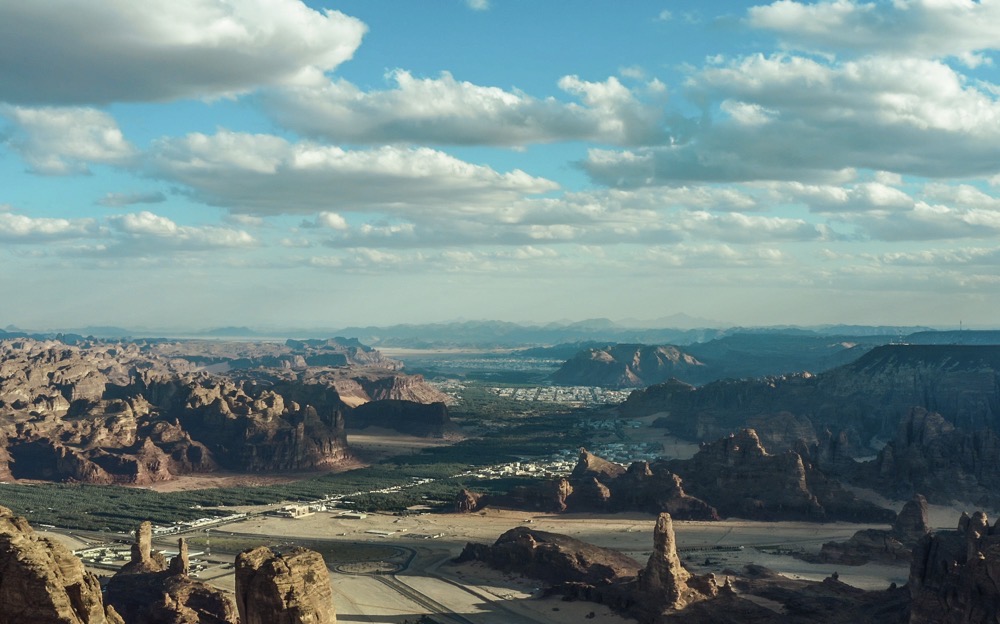
Under the new partnership, the World Bank will help the RCU create the necessary frameworks to manage and support its objectives to develop the local community as well as protect AlUla’s landscape. (Supplied)
Sustainable regeneration for AlUla is the ability to deliver real, generational change for people and create long-term economic growth through the transformation of communities, and the conservation of ancient landmarks, traditions and cultures, he said.
“We are empowering people and places, growing economic opportunities and preserving our shared past,” Kurdi added.
Sustainable regeneration also entails taking action to repair what has been damaged or destroyed, and in the case of AlUla and the partnership, this means the strategic repair and upkeep of historic sites in the vicinity.
The aims of the RCU-World Bank partnership are aligned with the environmental targets outlined by world leaders at the UN Climate Change Conference, COP27, held at Egypt’s Red Sea resort town of Sharm El-Sheikh in November.
“Our focus is on people and the planet,” said Kurdi. “The support and development of communities and the conservation, and protection of the natural world are fully integrated into this partnership. Our perception of its success will be built upon the achievement of our clear, long-term sustainability targets.”
Indeed, the World Bank is part of a global network assisting the RCU with its 2035 target of planting 10 million trees and 200 native species of flora, expanding its plant nursery to seed millions of native plants, welcoming 200,000 visitors to its nature reserves and increasing the population of native animal species at its breeding centers before their release into the wild.
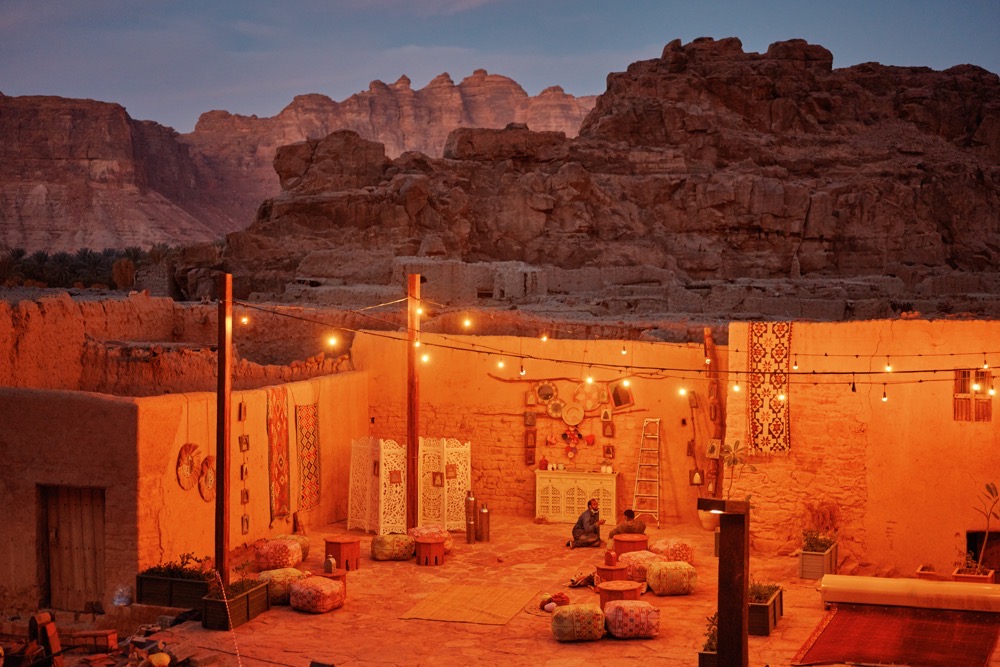
RCU is aiming to create thousands of new jobs by the middle of the next decade. (Supplied)
The AlUla regeneration plan also includes the construction of infrastructure, designed and developed in a sustainable manner using environmentally friendly materials.
The RCU-World Bank partnership is now in the assessment stage. “Visibility on shared outcomes, on critical tools, policies and ideas will help the partnership build strong cultural, social and financial strategies at the operating level while also emboldening its chances of success,” said Kurdi.
The success of the plan will be measured against various benchmarks laid out according to defined phases and principles to shape implementation as well as technical expectations, including coordination between experts from the RCU and the World Bank.
Kurdi added: “We have high expectations for our partnership with the World Bank to achieve physical, social and fiscal sustainability within AlUla while delivering on our quality-of-life goals.”
